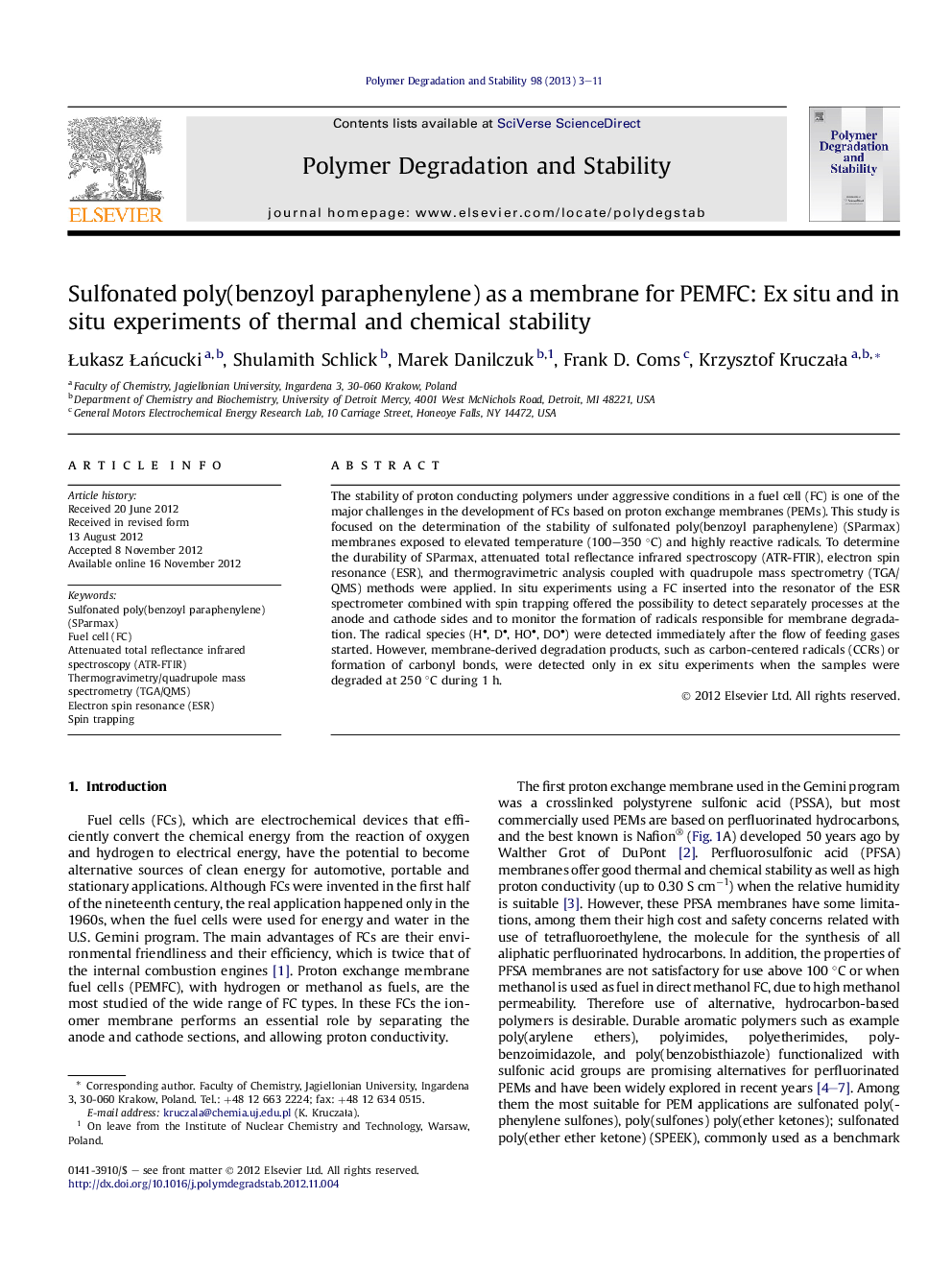| Article ID | Journal | Published Year | Pages | File Type |
|---|---|---|---|---|
| 5202426 | Polymer Degradation and Stability | 2013 | 9 Pages |
The stability of proton conducting polymers under aggressive conditions in a fuel cell (FC) is one of the major challenges in the development of FCs based on proton exchange membranes (PEMs). This study is focused on the determination of the stability of sulfonated poly(benzoyl paraphenylene) (SParmax) membranes exposed to elevated temperature (100-350 °C) and highly reactive radicals. To determine the durability of SParmax, attenuated total reflectance infrared spectroscopy (ATR-FTIR), electron spin resonance (ESR), and thermogravimetric analysis coupled with quadrupole mass spectrometry (TGA/QMS) methods were applied. In situ experiments using a FC inserted into the resonator of the ESR spectrometer combined with spin trapping offered the possibility to detect separately processes at the anode and cathode sides and to monitor the formation of radicals responsible for membrane degradation. The radical species (Hâ¢, Dâ¢, HOâ¢, DOâ¢) were detected immediately after the flow of feeding gases started. However, membrane-derived degradation products, such as carbon-centered radicals (CCRs) or formation of carbonyl bonds, were detected only in ex situ experiments when the samples were degraded at 250 °C during 1 h.
